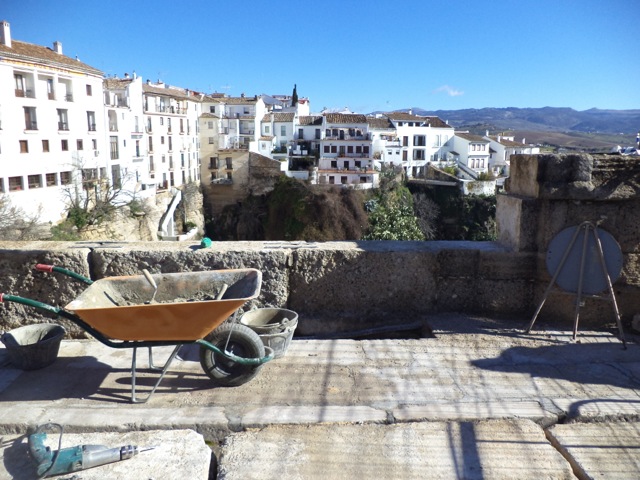
When my almost 85-year-old father visited Ronda last year, he exclaimed that he had never been kissed so much before in his whole life!
Like it or not, Andalucíans are a passionate lot. They live, love, talk, dance, eat, drive, and certainly, as my late father pointed out, kiss with more ‘gusto’ than most of us from more northerly climates.
I am aware that I am moving on the shaky ground of stereotypes here, where whole nations are labeled as limes, kiwis and frogs. When it comes to my own kind, the Norwegians are generally portrayed as Fargo-like: tall, stoic and a bit slow, with conversational abilities limited to ‘Pass the cod’. I am the first to admit that there may be some truth to these sweeping generalizations, though like anything, there are exceptions.
A Swedish friend here in Ronda, Malin, told me that some locals use the expression ‘un sueco’ (a Swede) to describe someone doing something ‘dumb’. She is of course not pleased with this, but us Scandinavians are used to hearing ‘dumb blond’ jokes about our kind, even though she herself is a feisty redhead! Frankly, Norwegians are no better when it comes to stereotyping. We use the expression ‘to take a Spanish one’ when referring to taking a not-completely legal shortcut or doing something ‘quick and dirty’. It is not fair to the Spanish, of course, though I have to admit that I have never seen so many people taking illegal U-turns or jumping a long bank cue as here in Andalucia…
To get back to my father’s observation on frequent kissing, if one wants to live amongst passionate people, one has to expect the unexpected. With passion come more spontaneity, higher tempers and BIG pathos. In other worlds, if you want the kisses, you also have to take a few loud public arguments, car-honking and arm-waving. (But what would life in Spain be like without it?)
A logical bi-product of the lively Spanish temperament is what I call ‘the Spanish Quick-Fix Method’.
We see examples of this all around, though it is not testament to poor Spanish workmanship, as much as a proof of their wish to quickly mend something, with all the best intensions of coming back and fixing it better and more permanently at a later date. Though as the saying goes, tomorrow never comes, and this is even truer when one speaks of mañana….
Our first winter here was very rainy and on the main road between Ronda and the province capital Málaga, there was a large mudslide closing off the road. For months, we had to do a 30-minute detour through a village called Teba (well worth a visit, by the way…). When they opened the road again, they had simply pushed the earth a bit closer to the side of the road, still forcing cars to drive into the oncoming lane of traffic. Every time we would drive by, we were joking that we should bring a spade in the car and take a few digs each. This way, we said, the road would be cleared before the Andalucían road authorities got to it, though all it really would take was someone with a tractor zipping about for a few hours. Finally about 18 months later they fixed the road, and even built a nice new stone retaining wall. Be this as it may, to me, this is the perfect example of the Spanish Quick-Fix Method.
Henry Higgins was right when he said ‘the rain in Spain’, as it does actually rain here. Not as much as other places mind you, but certainly enough that people ought to make houses that are capable of taking some precipitation. Yet, you would be surprised to discover how many houses in our neighbourhood alone that have to put up a temporary rain shade, as in a piece of cardboard or a piece of ply-wood, slanted out from their front door and onto the sidewalk to prevent the water from running into the house.
We see numerous examples of ingenious Spanish temporary solutions every day, from old mattress springs used as ‘temporary’ fencing to manhole covers padded with a piece of old tire to prevent the lid from making a sound each time a car passes. One may think it is very ‘third world’. However, though the electric wires which hangs like droopy Christmas garlands along our street look very much like the ones I observed in rural India, our electricity have not failed once in almost two years, which is more than what I can say about the modern electrical system in Vancouver, where sometimes the whole city goes black for hours.
Alas, the Spanish may fix things the ‘quick and dirty’ way, at least temporary, but to me this just adds to the unique charm of this place, just like the kissing…





